| "I think it's a little bit of a Don Quixote jousting at windmills efforts," -- Republican Governor Asa Hutchinson of Texas on GOP efforts to intervene in the certification process of the 2020 presidential election
Welcome to the "Face the Nation" Five at Five newsletter. Scroll down for your five takeaways from today's broadcast with moderator Margaret Brennan on CBS. Did someone forward you this? Sign-up at cbsnews.com/email. 1. Warp Speed's Slaoui says government needs to boost pace of vaccine roll out 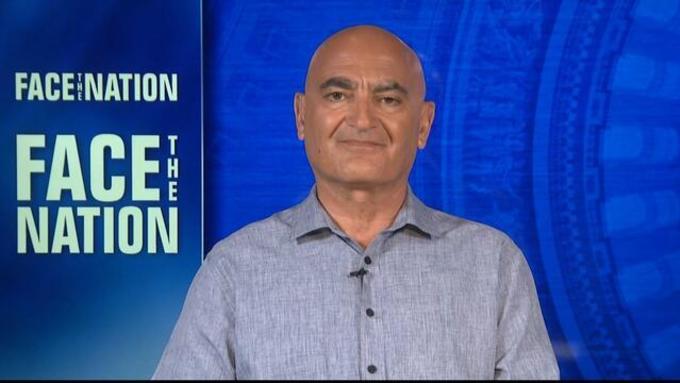 With the administration of coronavirus vaccines moving slowly, sparking frustration from state and local leaders, Dr. Moncef Slaoui, the chief adviser to Operation Warp Speed, acknowledged Sunday on "Face the Nation" that the pace of getting shots into the arms of the American people needs to accelerate. What we asked: The president twice this week has blamed the states for failing to distribute it. If they're not up to the task, what are you doing in Operation Warp Speed to help them? What Slaoui said: "We need to improve... We stand by here to help any specific request. We will do the best we can, as we have done over the last eight months, to make these vaccines indeed make it into the arms of people." Why it matters : Vaccine distribution began last month after two coronavirus vaccines, one from Pfizer and Germany's BioNTech, and another from Moderna, received authorization from the Food and Drug Administration for emergency use. Healthcare workers and residents of long-term care facilities were first to receive the vaccines, and the Centers for Disease Control and Prevention recommended front-line essential workers and people age 75 and older, followed by those ages 65 to 74 and people ages 16 through 64 with underlying medical conditions, should be next to get vaccinated. President Trump meanwhile, has praised himself and his administration for fostering the development and approval of two coronavirus vaccines in less than a year through Operation Warp Speed. But rollout of those vaccines to Americans has slowed because of logistical challenges. The holidays have only compounded those issues, as already-burdened hospitals and health departments did not have enough staff to administer shots. 2. Garcetti amid LA surge: "This is the darkest month we'll have" 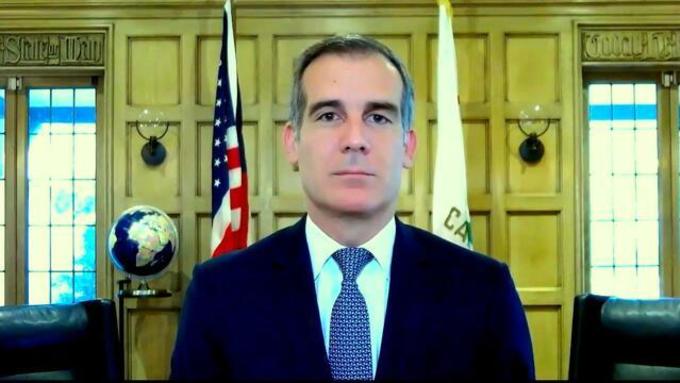 Los Angeles Mayor Eric Garcetti explained on "Face the Nation" Sunday that amid a surge in deaths and cases due to the coronavirus epidemic, failure to comply and a complacency in adhering to health guidelines is exacerbating the virus' surge. What we asked: Is the higher incidence of death due in any way to the fact that you have a shortage of medical personnel? What the mayor said : "There's no question that we have a shortage of medical personnel, but that's not yet why we think those deaths are happening. We think it is spreading. It may be mutating as well, but we do believe that this is just how widespread it is and that a lot of people who are younger or don't have pre-existing conditions have become very comfortable. This is a virus that preys off of our weakness, preys off of our exhaustion. 95% of people can be doing the right thing. It's still dangerous. If 80% are doing the right thing, it is disastrous. So, while we have high compliance here, we still have these tough months- and I think the vaccine has made everybody so hopeful that they can relax their behavior. We cannot. We cannot let up. This is the darkest month we will have, the toughest moment when both our country, its government and the nation- our people will be tested." Why it matters: Garcetti's warnings come as Los Angeles County is now at the epicenter of the outbreak right now with a high percentage of deaths among people with no underlying conditions. Put it in perspective, according to Garcetti: "We're seeing a person every six seconds contract COVID-19 here in Los Angeles County, the nation's largest county, 10 million people." 3. Arkansas Gov sees flaws in GOP efforts to thwart certification 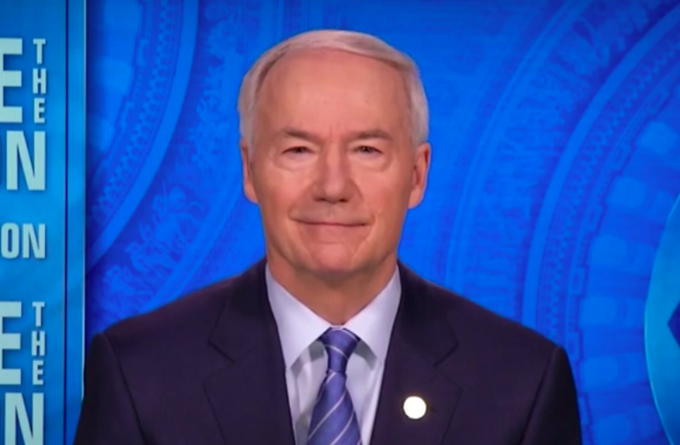 With inauguration day set to take place in less than 3 weeks, Republican Governor Asa Hutchinson of Arkansas compared Senate GOP efforts to contest the 2020 presidential election results to "a Don Quixote jousting at windmills efforts" which "will certainly fail." What we asked: Other Republican senators say this is destructive to do in the first place. Where do you stand? What Hutchinson said: "It's a process that they have the right to initiate. I think it's a little bit of a Don Quixote jousting at windmills efforts. I think it is designed- certainly it will fail. Joe Biden is our president-elect and he will be confirmed in that capacity. I do think that from a state perspective, the challenges have been initiated through recounts and court challenges. And that's how we work in our Electoral College, state by state. And so when it gets to Congress, it's really a limited opportunity to review the intricacies of the election process. We should have confidence in what has been done and the reviews and the recounts. And let's all recognize that while the system is not perfect, it worked state by state, and we should accept those results and move on to do some good things for our country." Why it matters: Hutchinson's comments come as nearly a quarter of Senate Republicans say they have concerns about voter integrity, and plan on Wednesday to challenge Joe Biden's Electoral College win. It's important to note, however, that the effort being led by some of the Senate's most outspoken Republicans and President Trump's staunchest allies, is all but certain to fail in terms of changing the outcome of the election. 4. Dr. Gottlieb feds should expand vaccine eligibility to speed up pace of shots 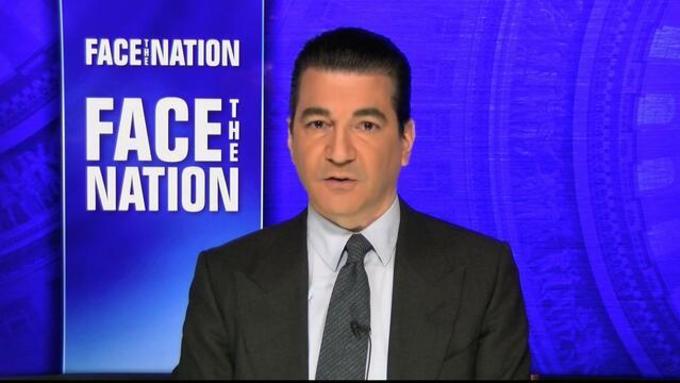 As states work to address the lag in administering coronavirus vaccines and confront a new, more contagious variant of the virus, Dr. Scott Gottlieb, former chief of the Food and Drug Administration (FDA), recommended officials make the vaccines more broadly available to people ages 65 and older to accelerate the pace of administration. What we asked: Governor Hutchinson sort of leaned into that concept, saying they were looking at what the governors of Florida and Texas have done with making this available to other age populations at this point. Would you ask of- other governors to do that? What Gottlieb said: "I think we can have a dual strategy here where we continue to prioritize certain hard to reach communities and have public health departments focus on that mission. And they're uniquely skilled to do that mission and then make the vaccine more generally available through the retail pharmacies, through Walmart and Walgreens and CVS, to a broader population, to a general population starting with age. We can walk it down the continuum, make it available for 75 and above first, then 70 above, then 65 and above. There's 50 million Americans 65 and above, a large percentage of them probably want to be vaccinated. At some point, we need to allow supply to meet demand here and get the- the shots into the arms of the people who really want to get vaccinated and are going to go out and seek out the vaccination. If we're pushing it through the retail pharmacies, you're not going to see the long lines. They're going to have a scheduling system in place and it's going to be a more orderly distribution. And then, commensurate with that, we can have the public health departments focusing on the critical mission of going into homes, reaching harder to access communities, people who are more reluctant and need a little bit more encouragement to get vaccinated. That's someplace where the public health establishment can really focus on a discernible mission." Why it matters: Vaccines developed by Pfizer, with Germany's BioNtech, and Moderna rolled out last month after receiving authorization from the FDA for emergency use. The batches went first to health care workers and residents of long-term care facilities, but getting shots into their arms has been slow. As of Saturday, more than 17.5 million doses have been distributed, but only 4.2 million people have received their first of two shots, according to the Center for Disease Control and Prevention (CDC). Gottlieb also noted the reality of those vaccines sitting in storage right now as millions of Americans wonder when they'll be next in line: "There is more vaccine coming on the market every day. We're going to have a significant backlog or warehouse inventory of vaccines and that is tragic because they could be accomplishing an important public health purpose." 5. AARP CEO urges speed, transparency amid surge in elderly deaths 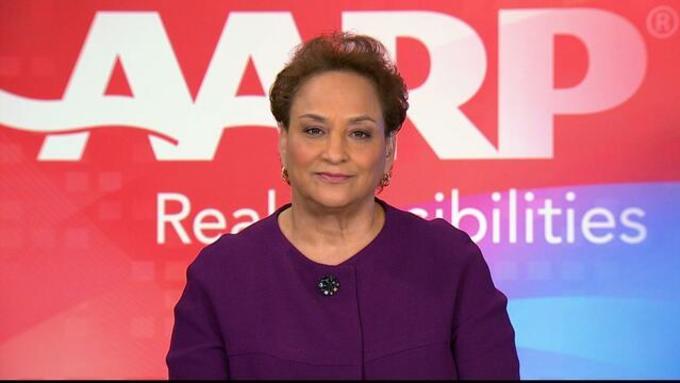 AARP CEO Jo Ann Jenkins criticized federal government roll out plans to vaccinate nursing home residents as "not moving fast enough" calling it a "unconscionable national disaster" as 350,000 people in the US have died from #COVID19, 40% of which have lived or worked in nursing homes. What we asked: Is it moving fast enough? What Jenkins said: "I think by every measure that it has not moved fast enough that, you know, 40% of the people who have died in this country live in nursing homes. And so, we see this really as an unconscionable national disaster that 350,000 people in this country have died from COVID-19 and 40% of them have lived in nursing homes or work in nursing homes, and yet they only represent 1% of the population. So, no, we're not moving fast enough." Why it matters: Jenkins outrage is justifiably placed as the country's elderly population is most at risk by the ongoing coronavirus epidemic. While 2.2 million doses of the new vaccines have gone out to nursing homes, only 13% of that has been administered to those who need it most. And as the federal government is still lacking a clear roll out plan across the country, the nation's elderly population is left confused by the chaotic process as to who and where to turn for answers: "There could be simple clarity and transparency about what is to be expected," says Jenkins. Georgia's still on our minds: CBS coverage continues 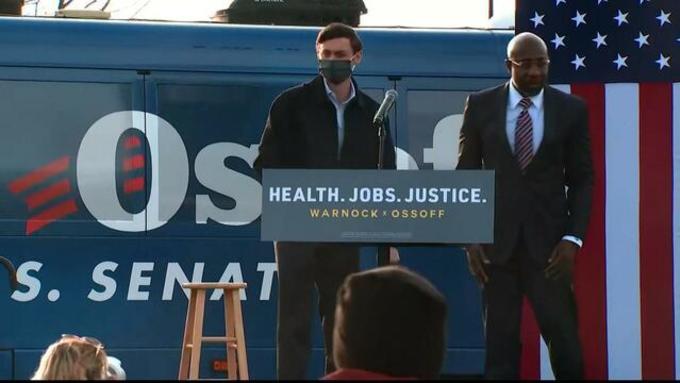 Because let's be honest, 2020 really never ends. That's right, there is still an election taking place and this time it's a duel, or rather dual. Georgia is set to hold two runoff elections this Tuesday -- the winners of which could perhaps change the very makeup of the U.S. Senate. Take a look at CBS News' Senior National Correspondent Mark Strassmann's preview of this week's vote here. Plus, tune in to CBS News and CBSN for all day coverage of the runoff.
|
Post a Comment
0Comments